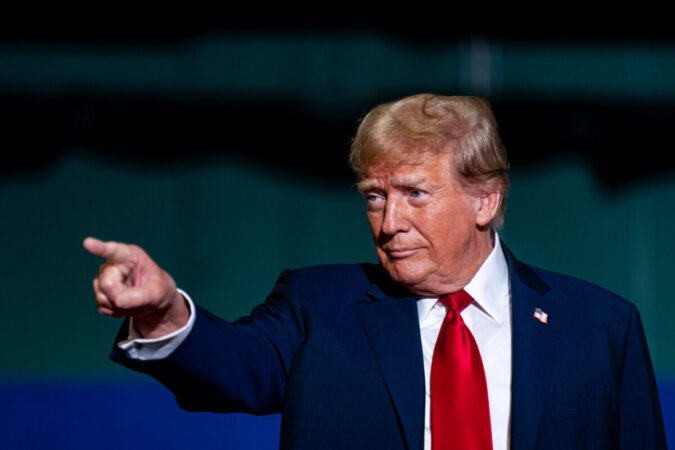Votes cast for former President Donald Trump in Maine’s primary on Super Tuesday will be counted after the Supreme Court ruled states cannot remove him from the ballot using Section 3 of the 14th Amendment.
Maine Secretary of State Shenna Bellows, a Democrat, withdrew the ban on Trump in a modified ruling that took into consideration the high court’s decision on Monday in a case from Colorado called Trump v. Anderson.
“The U.S. Supreme Court has ruled that individual states lack authority to enforce Section Three of the Fourteenth Amendment with respect to federal offices,” Bellows said.
“Consistent with my oath and obligation to follow the law and the Constitution, and pursuant to the Anderson decision, I hereby withdraw my determination that Mr. Trump’s primary petition is invalid,” she added.
In December, Maine became the second state to disqualify Trump from the ballot following Colorado over the view that he violated the 14th Amendment’s insurrection clause due to his conduct leading up to the U.S. Capitol breach on January 6, 2021.
Trump appealed the decision to the Maine Superior Court. His lawyers argued Bellows was biased and made a decision based on “untrustworthy evidence.” A judge put the decision on hold until the Supreme Court ruled, and the state’s top court declined to get involved before that happened.
The Supreme Court decision was timely for Trump, as Colorado and Maine have their GOP primaries scheduled on Super Tuesday. Illinois, a third state in which a decision to bar Trump from the ballot had been reversed, has its GOP primary set for March 19.
Trump is spearheading another presidential campaign this year. He is currently the GOP frontrunner with 273 delegates over Nikki Haley’s 43 delegates. If he secures the nomination, Trump could face President Joe Biden in a 2020 rematch in the general election.
CLICK HERE TO GET THE DAILYWIRE+ APP
But as he runs again for the White House, Trump faces a bevy of criminal cases, some of which are tied to January 6, as well as civil litigation. Trump has broadly denied any wrongdoing.
The Supreme Court announced last week that it was taking up the issue of whether Trump can invoke presidential immunity to shield himself from federal prosecution in a 2020 election case brought by special counsel Jack Smith. An oral argument is scheduled for the week of April 22.

